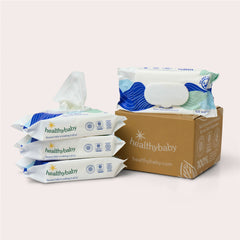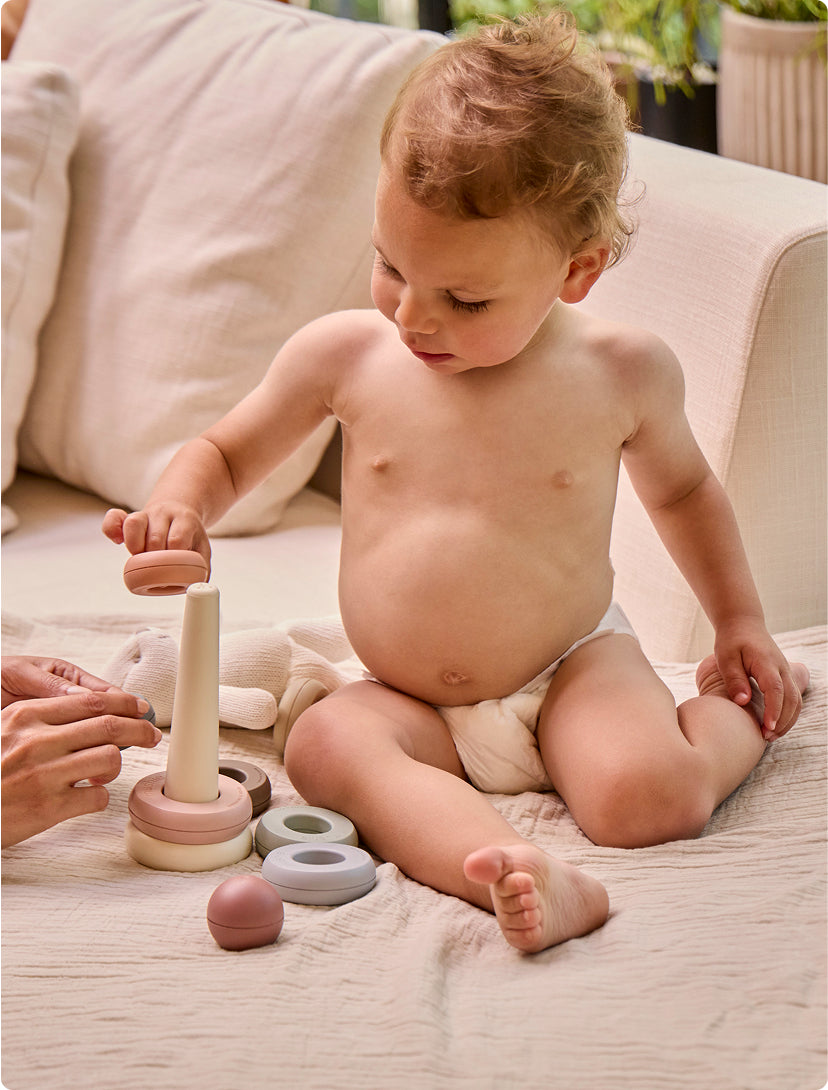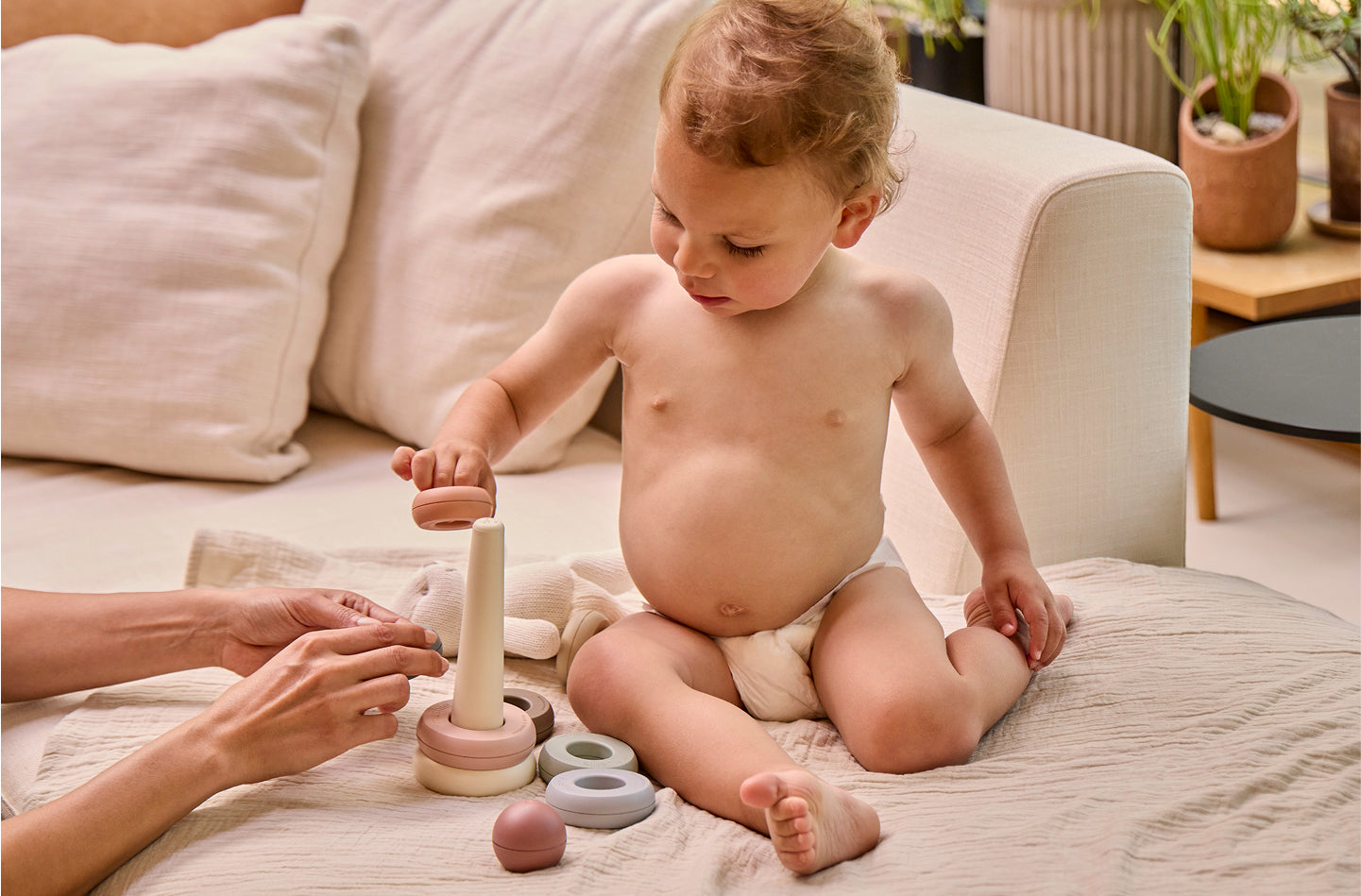Development isn’t a race. It’s a flow.
Every child—and parent—is figuring it out at their own pace.
Instead of milestones, we encourage you to focus on this amazing moment.
Your child’s brain makes more than one million neural connections per second in these first three years. Simple, consistent interactions with them today can have profound, lifelong benefits.
Here’s how little one’s brain is developing this month, and how you can support their progress.
Developmental Highlight
You may have heard the saying “Sometimes you win, sometimes you learn.” Little one learns by trying things out and making mistakes.
Scaffolding is a core concept in early education, in which an adult helps a child learn a new skill or concept by:
- Breaking a task into smaller steps
- Providing temporary guidance and encouragement
- Adjusting support
The goal of scaffolding is to help little one achieve a task or solve a problem that’s just outside of their abilities. By offering just enough support at just the right time during play, you can add a layer of learning to something little already knows.
Brain-Building Activity
Step By Step
Routine: Playtime
Every task is a series of small steps. Little one won’t know all of them yet and may need some hints, suggestions, and demonstrations before a connection is made. Helping little one sparingly gives them space to keep trying.
- Start by observing little one’s play. If they’re stacking blocks, you might suggest, “Maybe you can put the red block on top.”
-
Wait to see how little one responds. Offer support and encouragement to give little one the confidence to try. If they’re looking for the red block, you can offer some hints, but give them space to find it themselves.
- If little one appears frustrated as they attempt to stack the block, offer support. Consider modeling the next step, then let them imitate the move and try on their own.
- If little one doesn’t successfully complete the task, don’t finish it for them. Instead, mark any progress as an accomplishment. “You almost stacked the red block on top. Good trying! Tomorrow you can try again!”
You’ve Got This
In a world of constant multitasking and distracting technology, it can be hard to be fully present—even during activities we enjoy.
Play is little one’s work. It’s important for their development, and your guidance and encouragement during play sets the foundation for lifelong learning. Try to spend at least 10 minutes a day playing with little one. You’ll find the right places to interject and enhance their play—by singing, laughing, or narrating—and the time to back off and just watch.
While you’re at it, think about what play means to you. You deserve some 100% focused playtime, too.











